Author: MUHAMMAD IBRAR YOUNAS / SUNWODA TEAM
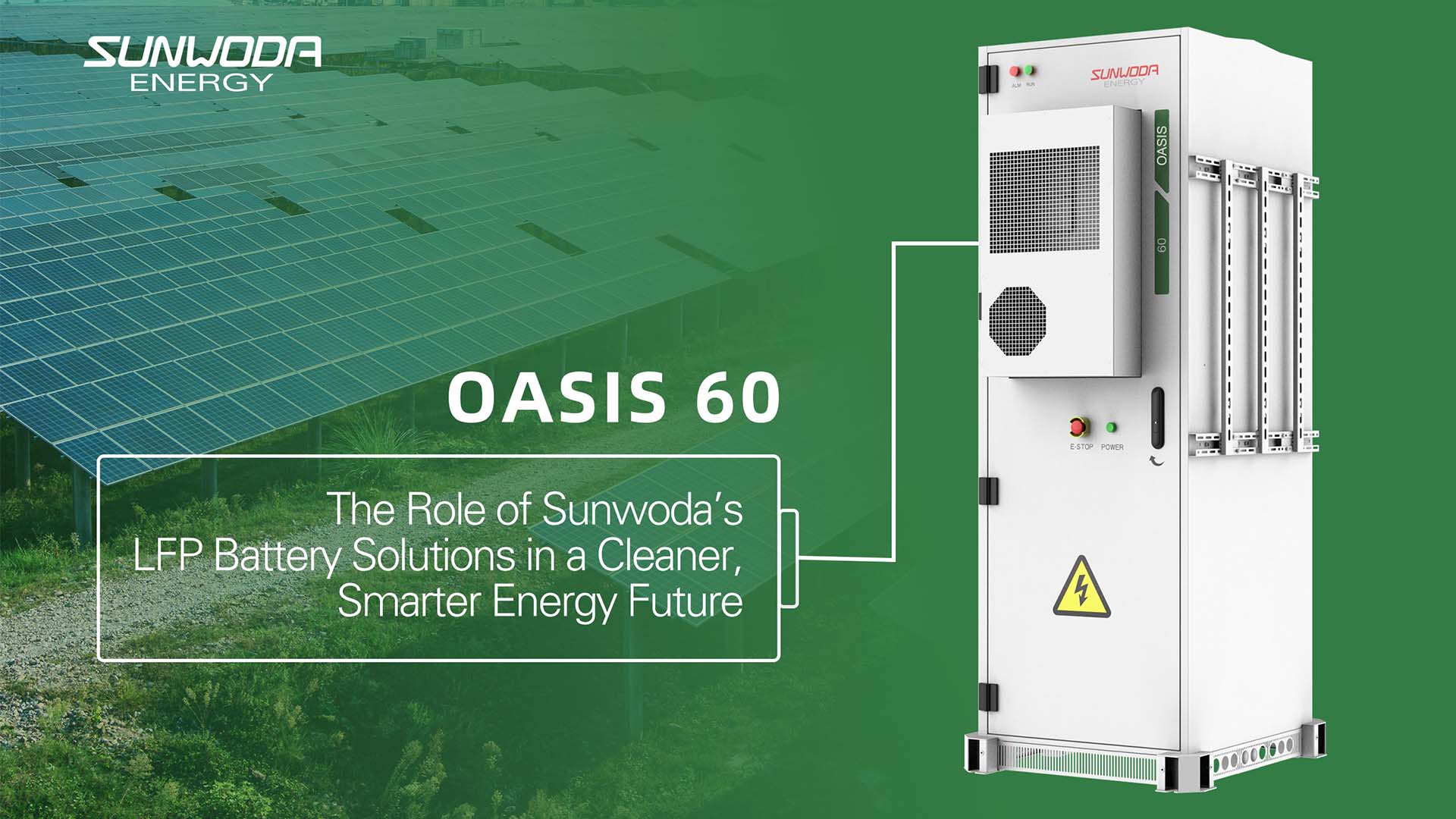
1. Executive Summary
As the world accelerates its transition toward sustainable energy, one fact has become increasingly clear: renewable generation is only part of the solution. Solar power has emerged as a leading contender in clean electricity production, but its potential is capped by the unpredictable nature of sunlight. Without dependable storage, solar systems often fall short of delivering consistent power when it’s needed most.
Sunwoda addresses this gap with its Lithium Iron Phosphate (LiFePO₄ or LFP) battery—tailored specifically for hybrid and off-grid solar inverters. These systems allow users to capture and store solar energy efficiently, ensuring round-the-clock power supply, lowering energy costs, and reducing dependence on fossil-based electricity.
This article provides a detailed overview of how Sunwoda’s LFP batteries supports energy reliability, decarbonization, and autonomy across a wide range of solar applications.
2. Introduction: Solar Power's Growth and Its Limitations
Solar energy has come a long way. The cost of PV panels has fallen dramatically over the last decade, leading to their widespread adoption. What was once a niche technology is now central to national energy strategies around the world. But even with solar panels on rooftops and large-scale solar farms dotting the landscape, one fundamental issue remains: sunlight isn’t always available when we need it. Solar energy production peaks during the day, just when residential demand is low—and fades as people return home and usage spikes.
Traditional power grids, built around coal and gas plants, were never designed to manage this kind of variability. As solar becomes a larger share of the mix, the pressure on grid infrastructure grows. That’s where energy storage steps in. By storing excess solar energy and releasing it when demand rises, battery systems make solar a reliable source of power. Among all storage technologies, LFP batteries strike the right balance between safety, longevity, and performance—making them a trusted choice for solar users globally.
3. Understanding LFP Technology
At the core of every Sunwoda battery is Lithium Iron Phosphate chemistry. This material offers a unique set of properties that make it particularly well-suited for solar energy storage.
Key Benefits:
• Durability: LFP cells handle thousands of charge cycles with minimal performance loss. It’s not uncommon to see these batteries operating effectively after 15 years of regular use.
Paired with smart battery management systems, LFP batteries from Sunwoda operate efficiently across a wide range of conditions—from residential rooftops to remote installations
4. Technology Comparison

LFP may not win on energy density, but its safety, reliability, and longevity make it a better long-term solution for solar storage.
5. Aligning with Global Sustainability Goals
Sunwoda’s LFP battery systems are more than just energy storage—they're a key part of the global push for a cleaner, more resilient energy system.
Environmental and Strategic Contributions:
• Clean On-Site Power: PV + LFP systems generate electricity without local emissions, replacing diesel generators or fossil-fueled grid power.
• Responsible Material Use: By using iron and phosphate, the batteries reduce dependency on materials like cobalt that come with supply chain and ethical concerns.
• Renewable Integration Support: With storage in place, solar can make up a larger share of grid power without compromising reliability.
• Remote Applications: These systems are ideal for off-grid areas where power reliability and environmental sensitivity are both critical.
• Longevity and Efficiency: A long service life reduces waste, while high round-trip efficiency ensures more usable energy from every solar panel.
6. Flexibility in Design and Use
One of the standout features of Sunwoda’s modern LFP batteries are their modular, scalable nature. Whether for a small home or a large commercial facility, the architecture can be adjusted to fit the application.
Practical Design Features:
• Scalable Configurations: Add more capacity as energy needs grow.
7. Reducing Grid Dependence and Powering Autonomy
Solar systems with LFP storage enable users to become less dependent on the grid, and in many cases, operate independently.
8. Reliability Around the Clock
Continuous power supply is crucial in a wide range of settings—from family homes to hospitals and manufacturing plants. LFP batteries meet these expectations with precision.
Why Reliability Matters:
• Voltage Stability: Smooth voltage curves mean better performance for sensitive electronics.
9. The Role of the Battery Management System (BMS)
A BMS is the system’s safeguard, optimizing performance while protecting the battery from stress or failure.
BMS Functions:
• Real-Time Monitoring: Tracks voltage, current, temperature, and overall battery health.
Sunwoda batteries are engineered for integration with approved list of hybrid and off-grid solar inverters. Each battery’s internal Battery Management System (BMS) communicates directly with compatible inverters, ensuring safe operation, proper voltage matching, efficient charge/discharge cycles, and long-term reliability. If an attempt is made to connect with a non-supported device, the battery’s BMS will recognize the mismatch and prevent operation.
Approved Compatibility List of Hybrid and Off Grid Inverters:
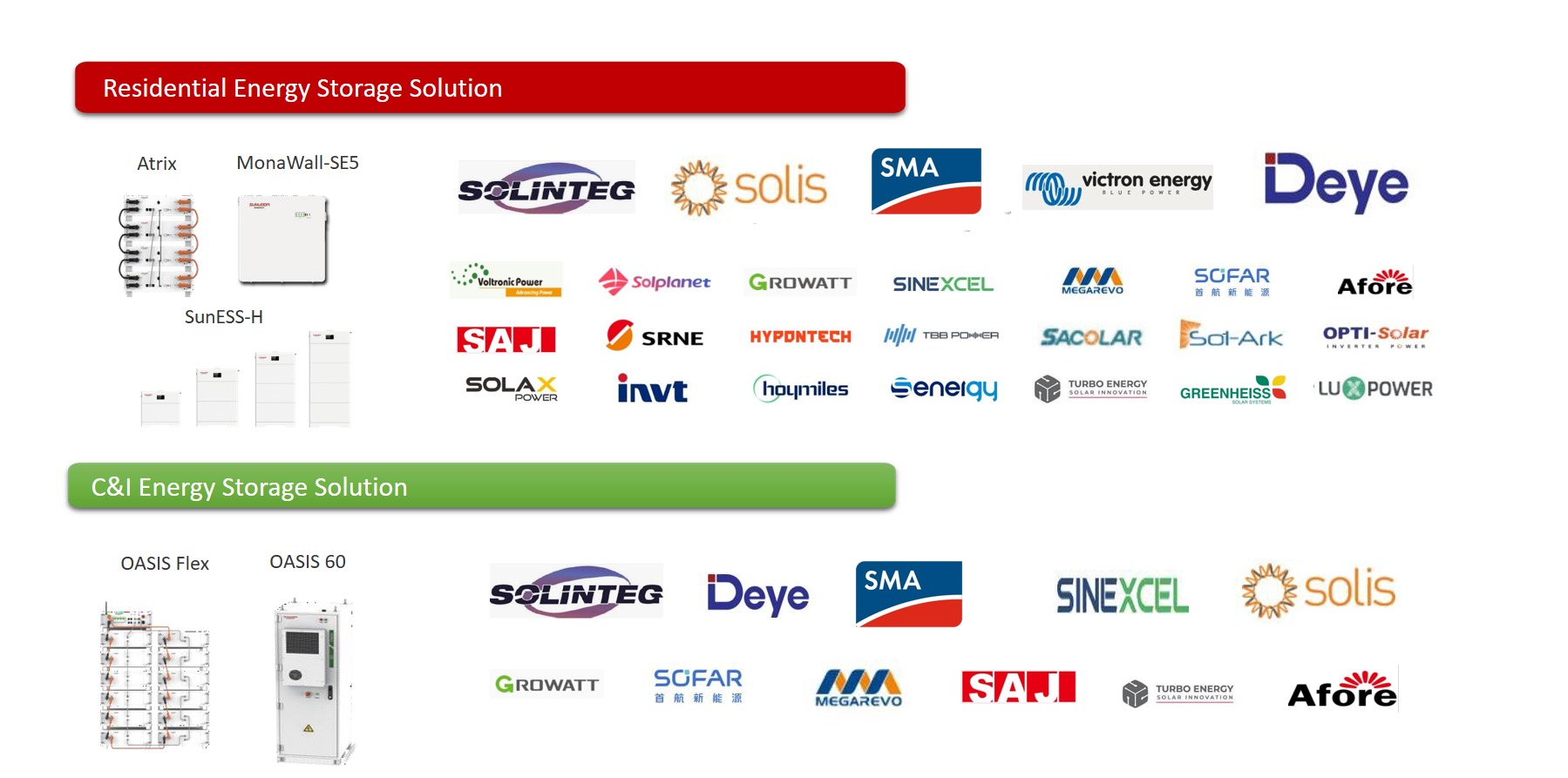
This controlled pairing is not about restriction—it’s about precision. The solar environment presents predictable energy patterns and relatively steady demand profiles, allowing the batteries to deliver optimal performance with minimal stress. This purpose-built alignment enhances efficiency, prolongs cycle life, and maintains safety across varying climates and usage conditions.
10. Real-World Applications and Product Introduction
LFP batteries are already being used in diverse settings around the world.
Atrix Battery is a compact and reliable IP20 residential energy storage solution, offering 5kWh of capacity with a built-in BMS for optimized performance. Compatible with over 30 top hybrid and off-grid inverter brands, it can be easily scaled from 5kWh to 1MWh, providing flexible energy storage for homes and small businesses.
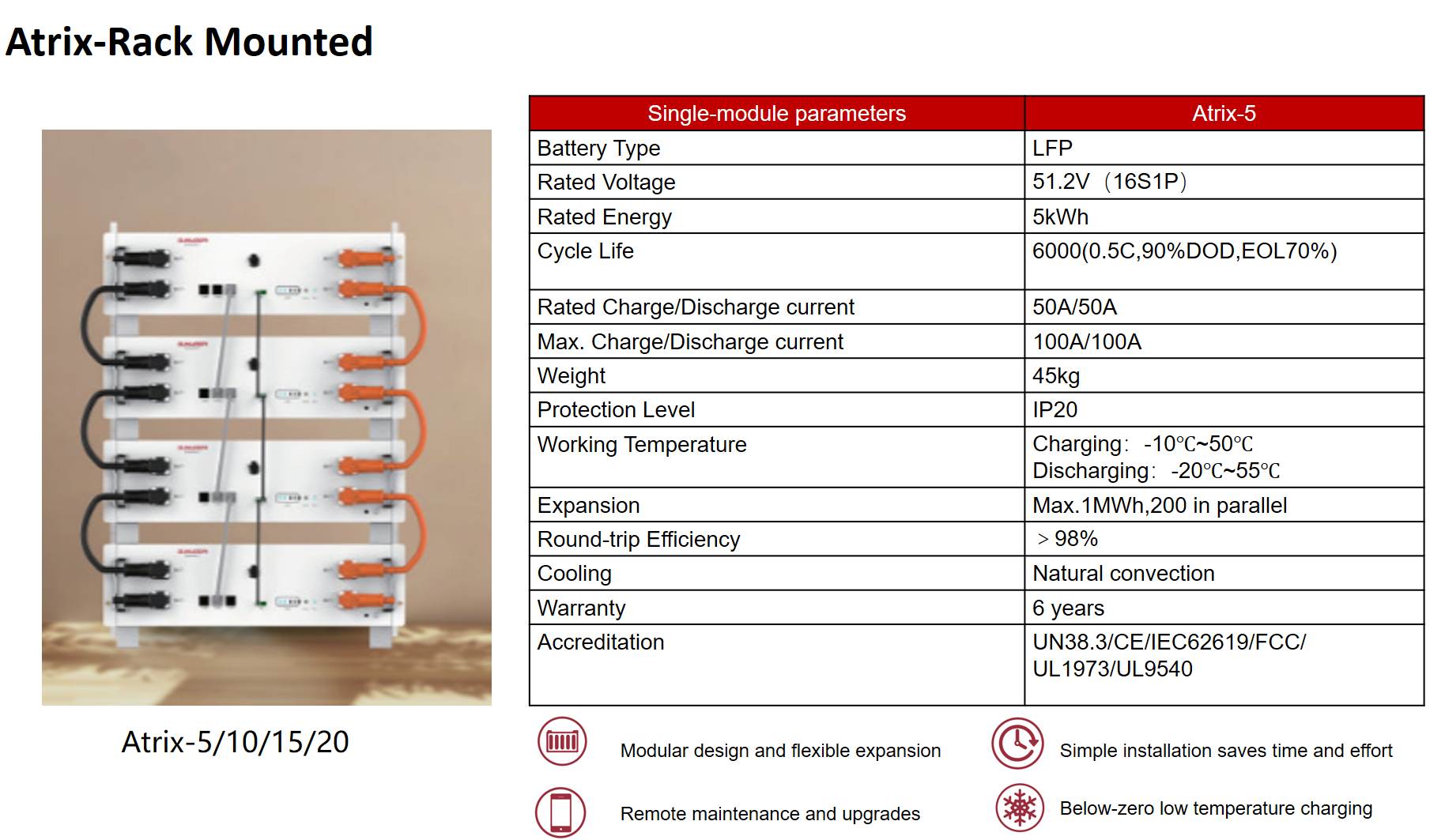
Monawall- SE5 is an elegant and beautifully designed IP65-rated wall-mounted residential battery, offering 5kWh of capacity with a built-in BMS for seamless performance. Compatible with over 30 top hybrid and off-grid inverter brands, it’s scalable from 5kWh to 80kWh, making it a versatile and stylish solution for efficient home energy storage.
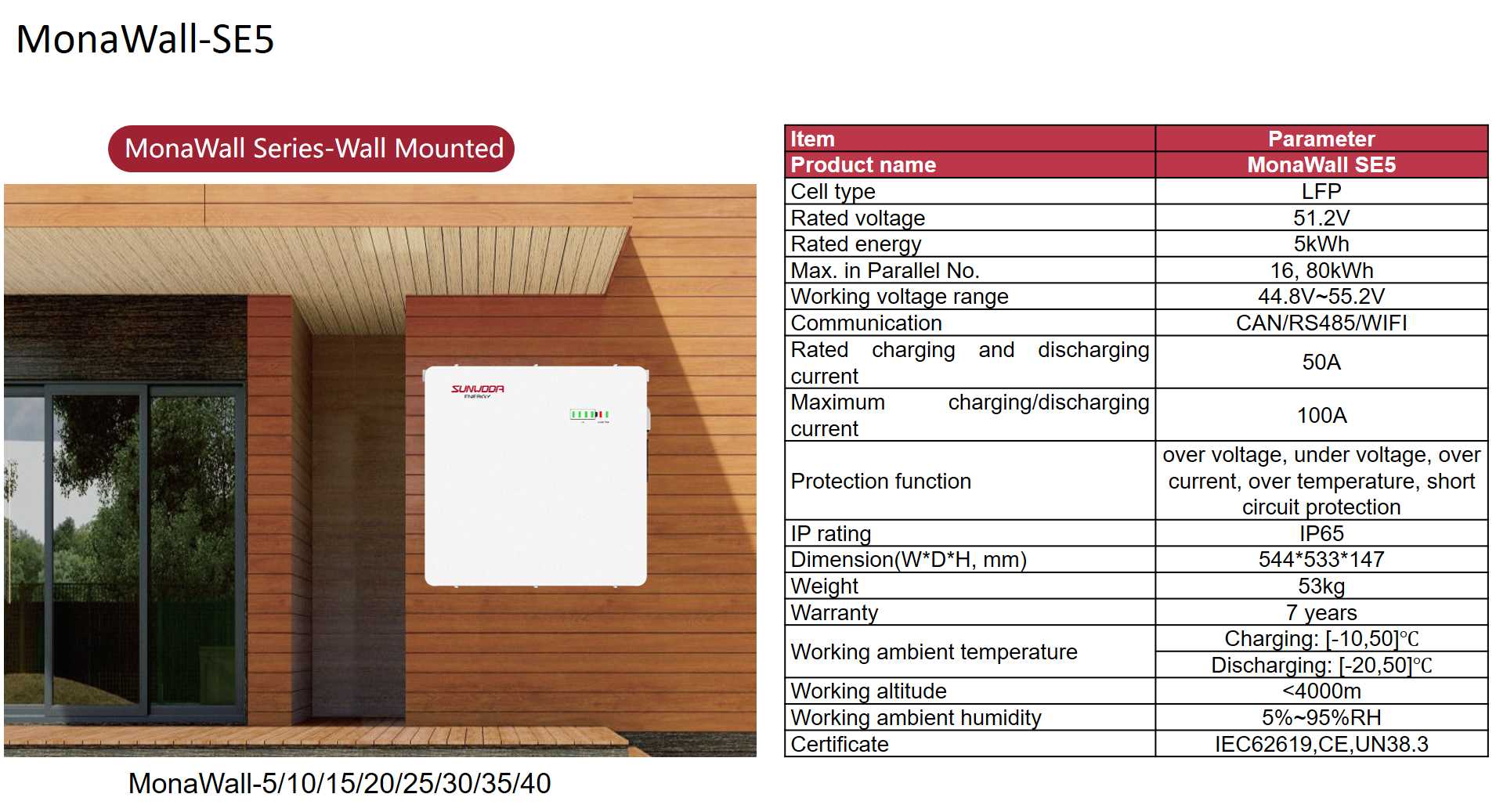
The SunESS-H is a beautifully designed, stackable 5kWh high-voltage residential battery system with an IP65 rating, making it ideal for both indoor and outdoor use. Each module features a built-in BMS and DC/DC booster, elevating the voltage from 51.2V to 350–450V, enabling seamless integration with over 15 top hybrid and off-grid inverter brands. With modular scalability from 5kWh to 60kWh, the system supports growing energy needs without complexity. Independent battery logic allows any faulty unit to auto-isolate while the rest of the system continues uninterrupted. Additionally, it ensures system health through passive cell-level balancing and active module-level balancing for enhanced efficiency and longevity.
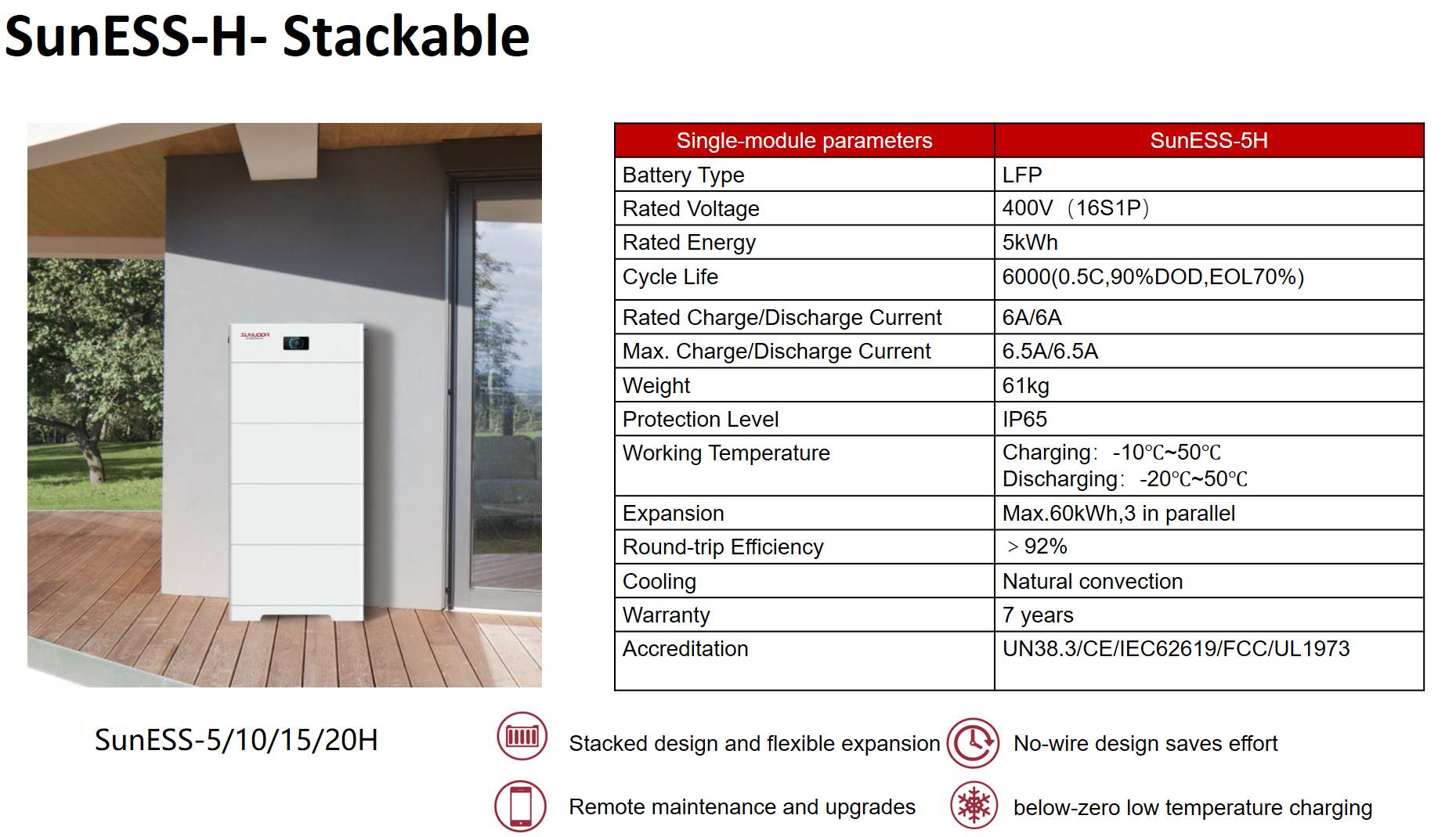
Oasis Flex is a versatile indoor battery solution, designed for commercial and industrial applications like schools, hospitals, and PV plants, offering both cell-level BMS and cluster-level BCMU for real-time monitoring and control of the system. Its efficient charging from PV during the day and discharging at night makes it perfect for sustainable energy management in various environments.
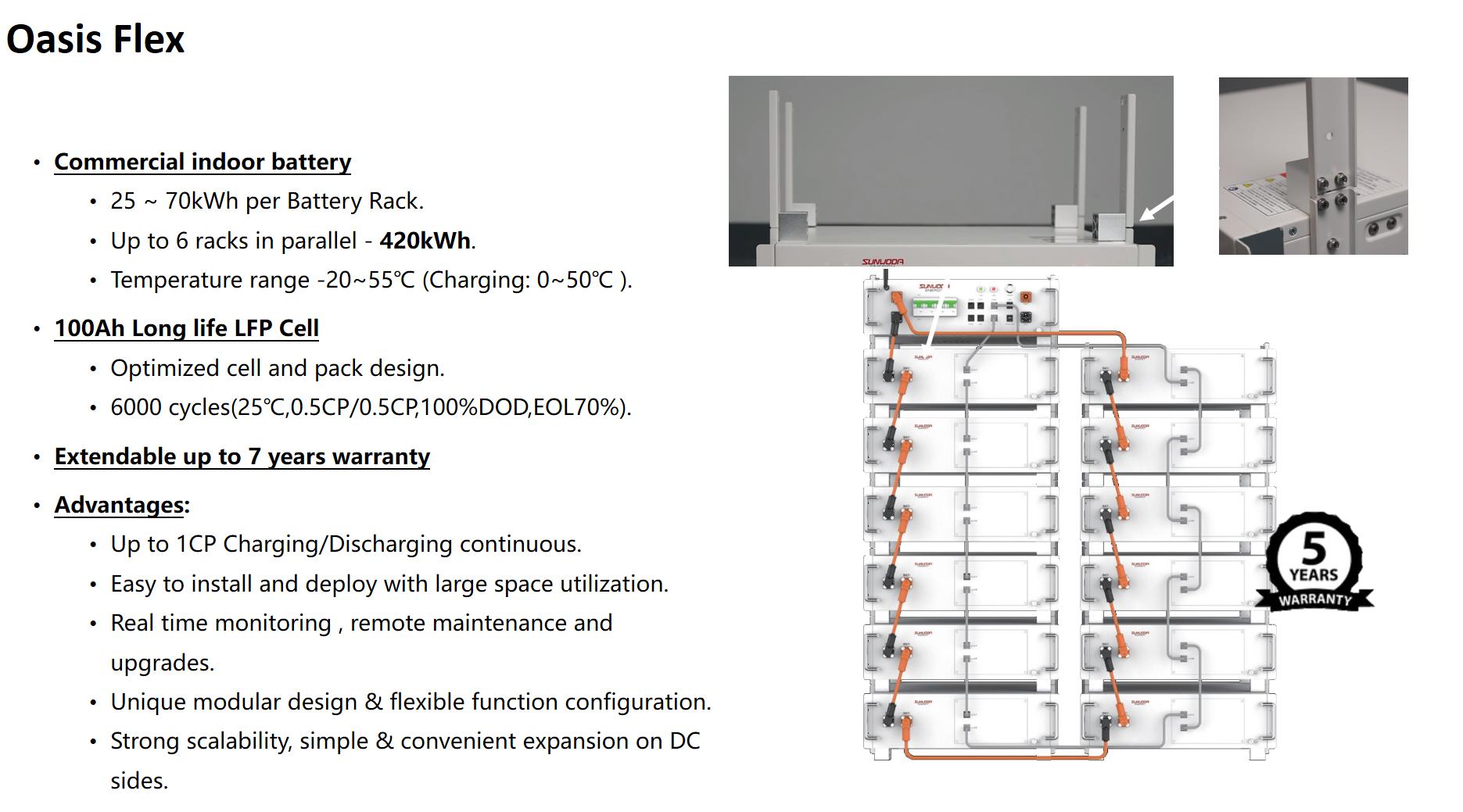
Oasis 60 is a robust, outdoor battery solution designed for commercial and industrial use, offering both cell-level BMS and cluster-level BCMU for advanced monitoring and control of the system. With built-in fire suppression, air conditioning, and efficient charging from PV during the day for nighttime discharging, it’s ideal for schools, hospitals, commercial centers, and PV plants Oasis 60 is compatible with 11+ hybrid/Off grid inverter brands.
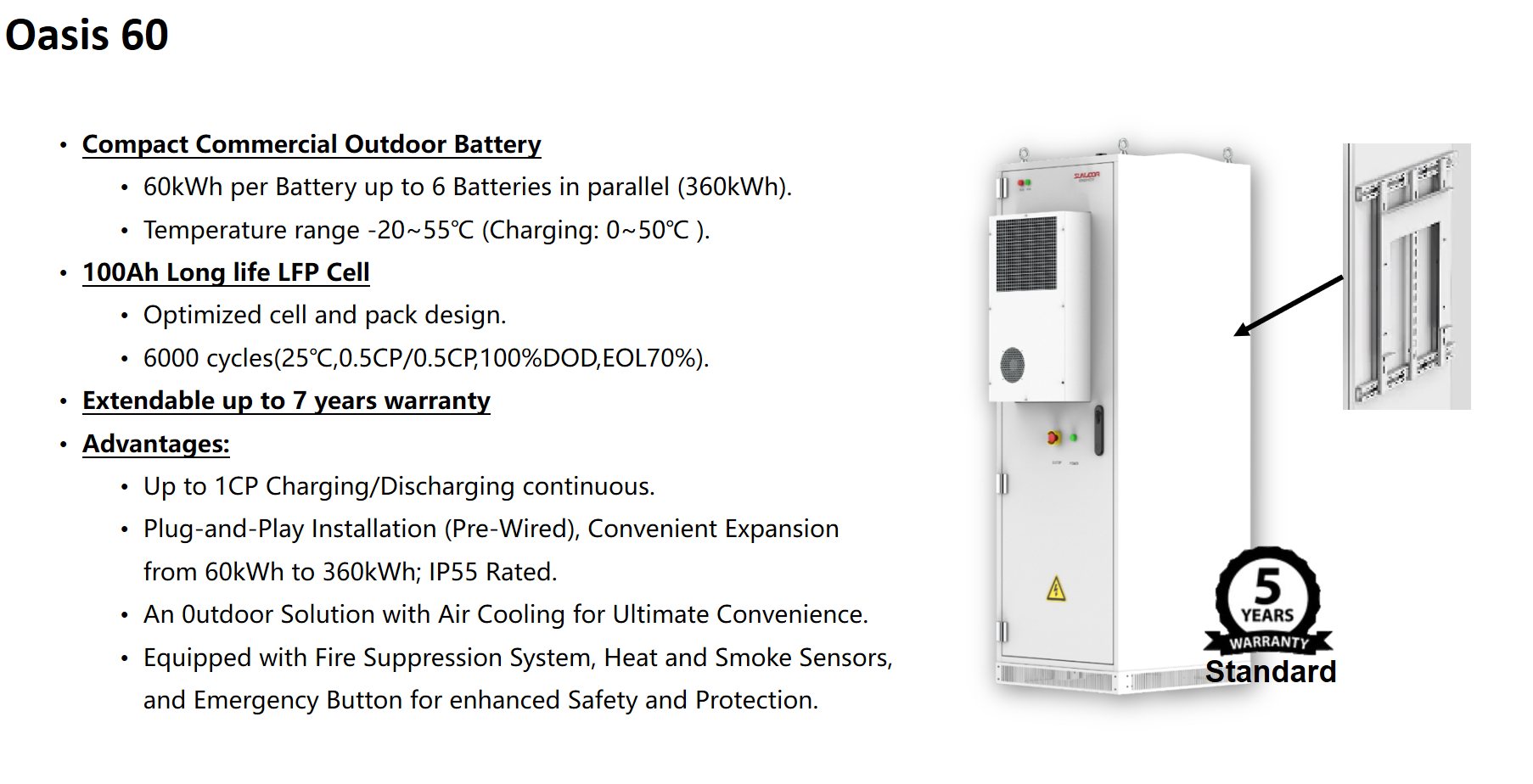
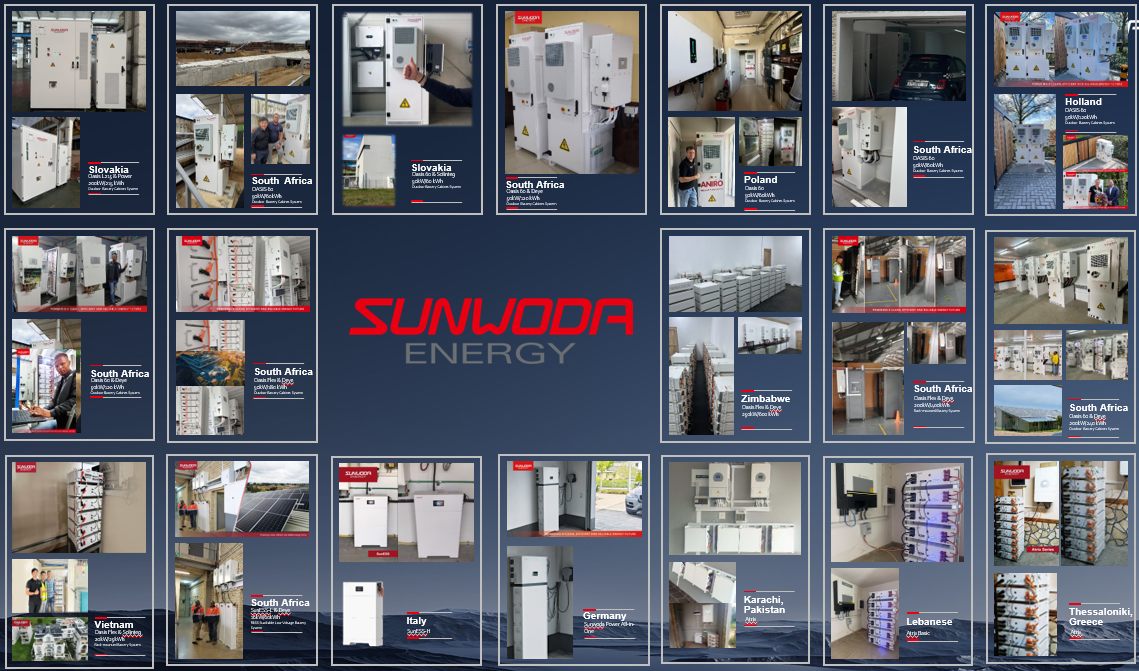
11. Conclusion
Solar power is one of humanity’s best tools for combating climate change. But to be truly effective, it needs to be paired with storage that is safe, scalable, and sustainable.
Sunwoda’s LFP batteries are built for this future. They are not just keeping the lights on—they are powering a cleaner, smarter, and more resilient world.